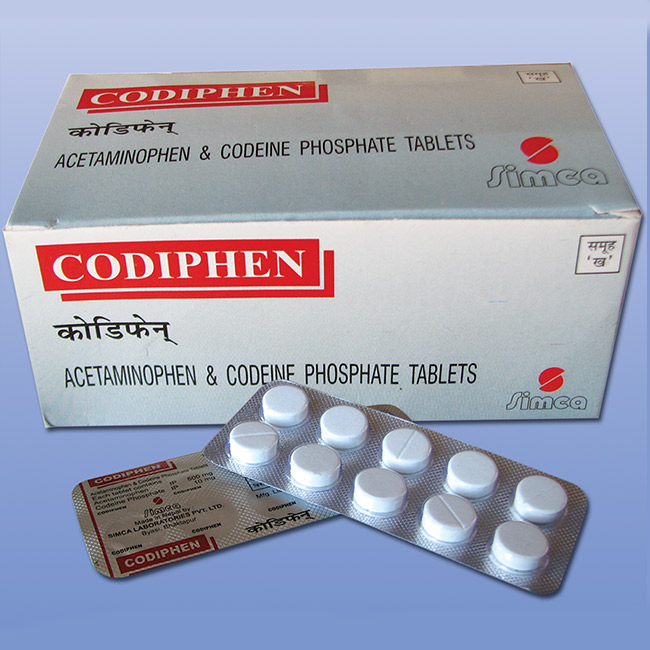CODIPHEN
Generic composition
- Acetaminophen 500mg and Codeine 10mg
Therapeutic category
- Non-steroidal Anti-inflammatory drugs
Dosage forms available
- CODIPHEN Tablet
Mechanism of action
- Codeine binds to mu-opioid receptors, which are involved in the transmission of pain throughout the body and central nervous system; shows analgesic properties
- Acetaminophen’s exact mechanism of action has not been fully established despite this, it is often categorized alongside NSAIDs (non steroidal anti-inflammatory drugs) due to its ability to inhibit the cyclooxygenase (COX) pathways which exert central actions that ultimately lead to the alleviation of pain symptoms.
Pharmacokinetics
- Rapidly absorbed from GI tract and distributed. Codeine is not bound to plasma proteins and doesn’t accumulate in body tissues. Metabolized in liver and elimination is via urine.
Uses
- Headache
- Muscle ache
- Back ache
- Fever
- Cough
- Arthritis
- Toothache
Dose
- 1-2 tablet every 6 hours; when necessary maximum up to 8 tablets in 24 hours
Side effects
Drowsiness, sedation, nausea, stomach pain, shortness of breath.
Contraindications
- Hypersensitivity to codeine, acetaminophen and similar compounds.
Precautions
Must be used with caution in patients with increased intracranial pressure, acute abdominal conditions, the elderly, the debilitated, impaired hepatic or renal function, hypothyroidism, Addison’s disease, prostatic hypertrophy and urethral stricture.
Drug Interactions
- Use with other opoids
- Anticholinergic drugswhen used concurrently with opioid analgesics including codeine sulfate, may result in increased risk of urinary retention and/or severe constipation


